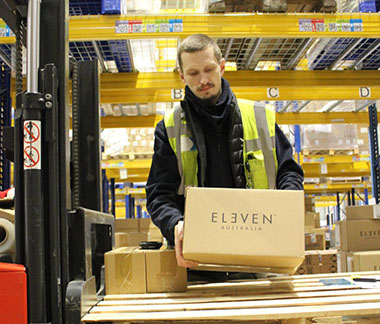Viaposte West Region Division’s commitment to transport decarbonisation
In these times of unprecedented energy crisis, the decarbonisation of transport is right at the heart of contemporary environmental issues. Over recent years, several alternative energies have emerged and quickly established themselves as a ready response to the goals of the French government’s National Low-Carbon Strategy (SNBC) for carbon neutrality by 2050.
With a view to achieving this decarbonisation goal, many transport companies have decided to commit to providing services that are more respectful of the planet and in line with state policy.
Viaposte is no exception, and is driving the change by accelerating the decarbonisation of road transport. Testimonials, awareness-raising, education and meetings: discover the actions that the company taking on a daily basis to involve its transport teams in the ecological transition.
Transport decarbonisation: an environmental emergency
The challenges of transport decarbonisation
The 2022 Secten Report from Citepa, the Technical Reference Centre for Air Pollution and Climate Change, took stock of the current air pollution situation in France. Unsurprisingly, among all transport modes, road transport remains to this day the biggest emitter of air pollution.
However, this situation is gradually improving. For example, between 1990 and 2020, carbon monoxide (CO) emissions fell by as much as 96%. This positive trend is a direct consequence of new European directives, and the deployment of new green technologies and energy.

Renewable energies as a ready response
Viaposte, aware of the complexity inherent in the decarbonisation of road transport, has chosen to focus on a mix of different energy solutions, including biogas, biofuels, electricity and hydrogen. In the current policy implementation, our partners are equipping their vehicles, and heavy goods vehicles in particular, to run on the following fuels:
- B100 biodiesel
- Biogas for natural gas vehicles (NGVs)
- XTL synthetic diesel
- Hydrotreated vegetable oil (HVO) biofuel
- Electric
Viaposte is making the ecological shift towards transport decarbonisation
With the aim of leading road transport towards the ecological transition, Viaposte is aiming to achieve over 50% decarbonisation by 2030. Discover Viaposte’s actions in favour of the environment in its West France Region, in 2022-2023.
Viaposte’s commitment to environmental initiatives
Following on from several months of an awareness-raising campaign reaching out to hauliers on the steps that can be taken towards the decarbonisation of road transport, Viaposte is organizing a series of meetings to stimulate further engagement and gather feedback from service providers on making this ecological transition.
According to Karine Reault, Viaposte’s Transport Director for the West France Region, “These meetings, which will take the form of biannual events, are a great opportunity for the 4 regions of the West France Region Transport Division, that is, Normandy, Brittany, Pays de la Loire and Centre-Val de Loire, to understand the attitudes of hauliers on the decarbonisation process and those who are still yet to be convinced.”
Viaposte intends to systematically introduce the use of green energies in each region of France in which it carries out transport activities.
To speed things up, Viaposte has made environmental issues decisive criteria in strengthening its partner haulier teams. Accordingly, tender selections will privilege new freight transport service providers with vehicles that can run on green energy.
2023 in figures
The results are very encouraging, particularly within the scope of the West France Region Transport Division, with as many as 7 million kilometres decarbonised in 2023.
“We have seen around thirty contracts turned to green energy since the beginning of October, involving both small and large hauliers. This means 2 million additional decarbonised kilometres per year, mainly using biofuel and biogas. We hope that these figures will be revised upwards at the end of the year,” adds Karine Reault, Viaposte’s Transport Director for the West France Region.
The next meeting event will be held in November of this year.
The Viaposte solution for decarbonising transport
To counter the financial argument considering the deployment of biogas, biofuels, electrical energy and hydrogen prohibitively costly, we offer financial support for transporters to compensate as much as possible for the expense in transforming their vehicle fleets.
All Viaposte’s road transport providers are offered the opportunity to move towards the decarbonisation of their transport activities, provided that their contract is suitable and the sustainability of the transition has been validated.
Do you have a road freight transport business and want to decarbonize and make the energy transition? Contact our teams and become a Viaposte partner committed to the environment!







